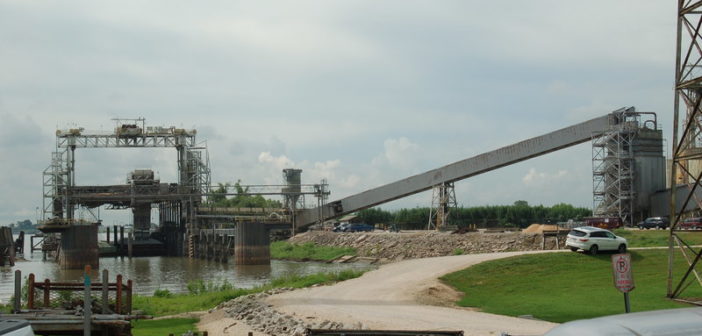U.S. ports are feeling the economic pinch of the coronavirus pandemic, as lost cargo and cruise ship business coupled with increased expenses for health and safety protections are forcing furloughs, layoffs and postponements of port improvements.
Like the inland waterways industry, deep-draft ports have kept vital goods flowing since the beginning of the Covid-19 pandemic to medical professionals and first responders as well as to key industries that underpin the economy. But after months of weakened business and rising costs, as commercial cargo has plummeted and passenger movements have virtually ceased, U.S. ports have piled up significant operating losses, according to the Association of American Port Authorities (AAPA).
The first big blow came in March when the Centers for Disease Control (CDC) imposed a “No Sail” order that prohibited cruise ship operations in U.S. ports. This order has been extended twice, now through Sept. 30.
Even when cruising resumes, schedules will likely be reduced as cruise lines try to figure out passenger demand and reconfigure their fleets as many have retired or sold ships during this downtime. Long-term loss of cruise business is very worrisome to U.S. ports, terminals and other maritime-related entities, sending their financial planning into a tizzy.
It’s not much better on the cargo side, where cargo-dependent ports “don’t have much financial wiggle-room to withstand an approximately 20 percent decrease in revenues,” according to Aaron Ellis, spokesman for the AAPA.
“While these are likely temporary conditions that will begin to improve after the pandemic subsidies, the impacts will linger long after the extraordinary coronavirus expenses recede, and could result in some ports and terminal operators being tardy on lease, debt and bond payment obligations and underfunding needed facility and infrastructure maintenance and improvements,” he added.
A recent study says the pandemic could result in the loss of 130,000 jobs at coastal ports. Staff cuts, reduced hours or furloughs have already occurred at ports in Portland, Ore.; Clarkston, Wash.; Baltimore and Los Angeles. Meanwhile, the Port of Seattle recently announced that it will postpone plans to build a new cruise terminal due to uncertainty from Covid-19. Before the pandemic, the port had projected that 2020 would be a record year for the cruise business. And as of Friday, Port Canaveral in Florida let go 115 workers, which is 43% of its workforce, blaming the no-sail order for cruise ships.
This has led the seaport industry to turn to Uncle Sam for help. On July 23, a coalition of ports asked Congress and the White House to include $1.5 billion to help ports weather the pandemic. They are seeking the emergency funding as part of the next Covid-19 financial package that is currently being developed, noting that no funding had been provided in previous emergency legislation to help ports and the maritime transportation system more generally. Reimbursement of these expenses would be authorized in legislation recently introduced by Rep. Peter De Fazio, D-Ore, that is moving though the House.
The money, AAPA said, would help ports cover the costs of cleaning and supplies, personal protective equipment, staffing, cyber and facility security, as well as debt service payments. Ports also seek a change in the current CARES Act that would allow governors to provide funds to ports, which is currently not authorized under the Act.
“The relief we’re seeking isn’t about replacing lost carrier, cargo and cruise passenger revenue,” Christopher Connor, AAPA CEO and president said in a statement. “It’s about ensuring that ports are able to keep pace with the accelerating costs of protecting their workers while keeping their workforce employed, ensuring bond and other debt instrument payments aren’t missed, and ultimately about maintaining a state of readiness to significantly aid in the nation’s eventual economic recovery.”
Covid-19’s effect on the maritime industry is another example of the widespread economic damage that the pandemic is imposing on the national and global economies.




